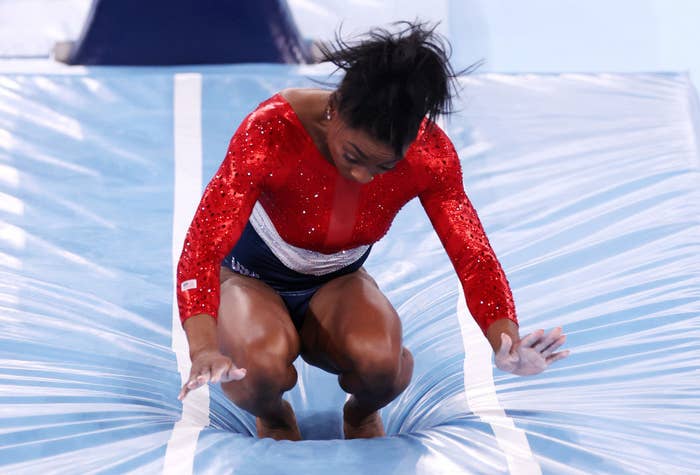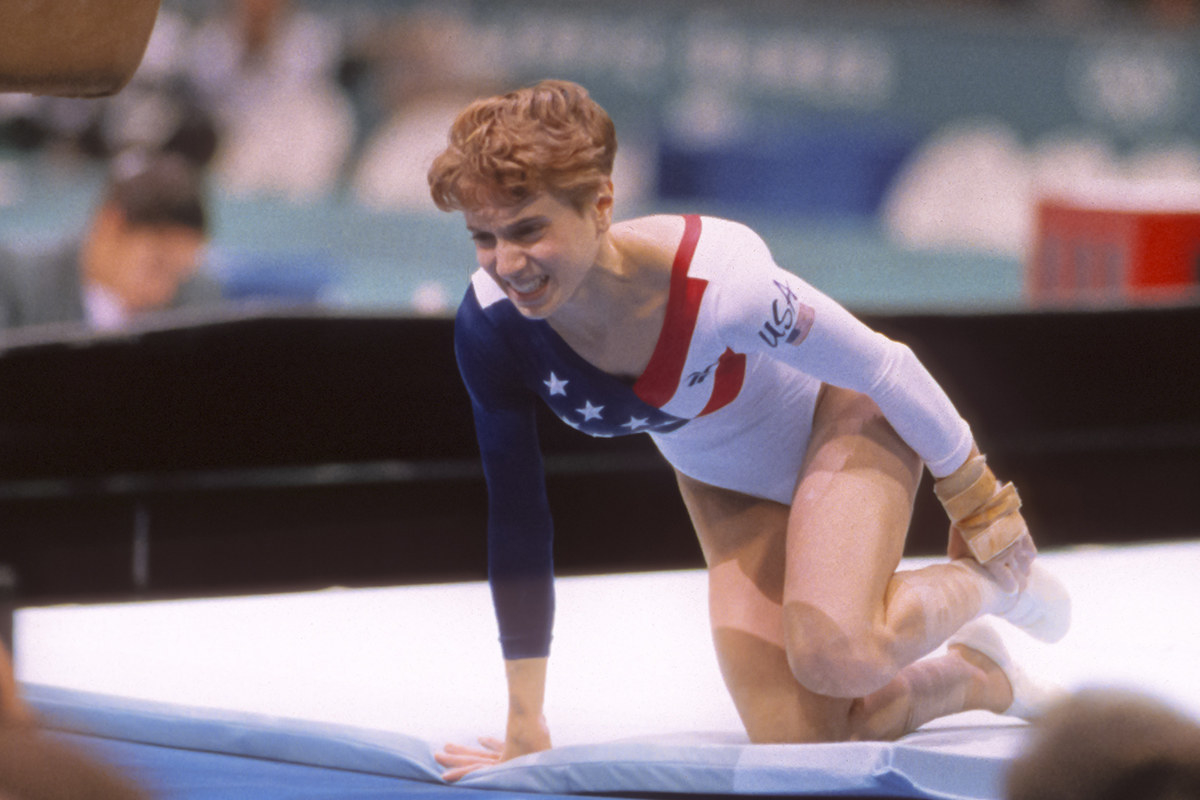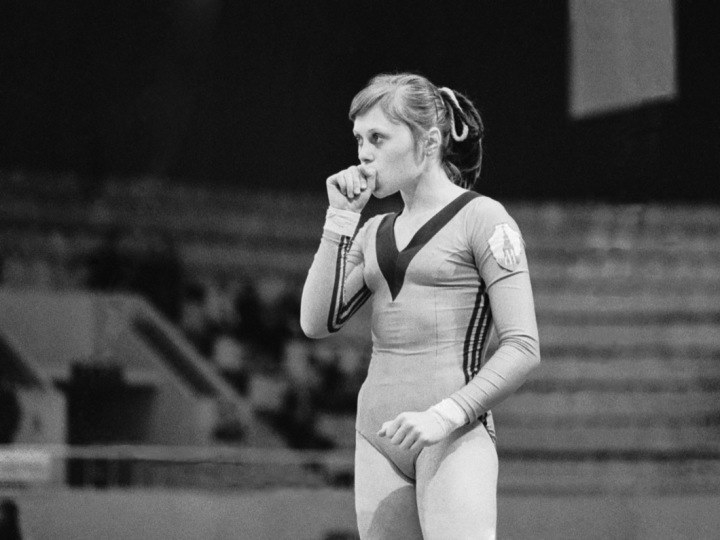Simone Biles’ withdrawal from the Olympic team final in Artistic Gymnastics and subsequent withdrawal from additional Olympic competition sent shockwaves throughout the gymnastics community and the sporting world as a whole. Citing mental health concerns, her decision sparked a larger conversation about the immense pressure placed on elite athletes and the expectation to perform at superhuman levels for the sake of entertainment and bringing prestige to one’s country. While her detractors saw it as an opportunity to criticize the athlete, many others voiced their support, with some pointing to disturbing parallels of gymnasts of years past pushing themselves far beyond their limits at extraordinary costs.
Gymnastics is a dangerous sport, but in general, non-gymnasts fail to recognize just how dangerous it actually is. Any of the maneuvers being performed at an elite level could cause severe and potentially life-threatening injuries when executed incorrectly. Factor in the inhuman elements Biles regularly performs in competition—skills no other gymnast in the world is able to do—and you have an entertaining and flashy, albeit dangerous, performance. When Biles acknowledged that her head was not in the right place going into team finals, gymnasts around the world sounded off and recognized that having an "off" day mentally can be a recipe for disaster, especially when one is performing skills with an extremely high level of difficulty like Biles.

The significance of Biles’ decision to say “no” cannot be understated. By withdrawing from the team final and from additional competition, her message was loud and clear: she was making a choice that many athletes before her did not have by putting her own wellbeing first. In other words, she was not going to be like the countless gymnasts who were pushed until they broke both mentally and physically, sacrificed on the altar of Olympic glory.
Any person familiar with Olympic history will recognize the name Kerri Strug, a member of the Magnificent Seven who competed in Artistic Gymnastics for Team USA in 1996 and famously competed on vault with a seriously injured ankle. For years the move has been heralded as heroic and iconic, but since Biles’ exit from competing in Tokyo, many are viewing Strug’s “achievement” in a different light. When Strug asked legendary (and notoriously ruthless) coach Béla Károlyi if the team truly needed her to vault again despite injuring herself in her first attempt, his response was “You can do it, you better do it.” Strug successfully landed her second vault and was carried off the mat as she grimaced in obvious pain. What we know now, though, is that the team did not, in fact, need Strug to vault one more time, as the team would have clinched the gold medal regardless. Károlyi carried Strug to the podium to the roaring cheers of spectators, but the damage was done. Strug was sent into an early retirement at the age of 18 after sustaining the injury.

Likely a lesser-known story to those outside the gymnastics world is that of Elena Mukhina, a Russian gymnast and 1980 Moscow Olympic hopeful. Mukhina rose to prominence in the late 70s when she won the gold in the 1978 World Championships. Soviet coaches viewed Mukhina as their shot to beat out the dominant Romanian team at the upcoming Olympics and restore Olympic glory to the Soviet Union. In 1979, however, Mukhina suffered a broken leg while training for the 1979 World Championships, which kept her out of the competition (a competition in which Romania was ultimately victorious). Despite pleas from Mukina to not take off her cast prematurely and insistence that she was not yet fully healed or physically ready to return to training, doctors removed the cast, only to find that Mukhina was correct and she was walking crookedly due to a fracture still not healed. After rushing her into surgery, the doctors yet again removed her cast before she was healed. At the behest of her coaches, Mukhina immediately resumed training for the Olympics.

Mukina’s coach, Mikhail Klimenko, felt that the best way to ensure the Soviet Union would win gold in Moscow was to add a variety of difficult elements to Mukhina’s floor routine, one of which being the Thomas salto (a move so dangerous it has since been banned from competition). Mukhina repeatedly told Klimenko that the element was too dangerous, as she kept sustaining injuries as a result of practicing the skill. Klimenko, however, would hear none of it, and insisted that she continue to practice the element and keep it in her routine. In July of 1980, two weeks before the Moscow games began, Mukhina under-rotated the Thomas salto during practice, landing on her chin and snapping her spine. She was rendered quadriplegic, ending her gymnastics career definitively. Mukhina died at the age of 46 due to complications related to quadriplegia, but prior to her death she went on record saying that as she lay on the gymnastics mat with her neck broken and spine snapped, her first thought was, “Thank God, I won’t be going to the Olympics.”
Perhaps the pressure of being an Olympian and feeling as though one has no choice but to break themselves to succeed was best summarized by 1996 Olympian Dominique Moceanu, a protégé of Károlyi's and Strug’s fellow member of the Magnificent Seven. Moceanu, who competed in Atlanta despite having suffered a fracture in her right tibia only a month before, tweeted her support for Biles along with a video of a nasty fall she took at the Games, landing on her head while performing on beam. Moceanu wrote, “I was 14 y/o w/ a tibial stress fracture, left alone w/ no cervical spine exam after this fall. I competed in the Olympic floor final minutes later. @Simone_Biles decision demonstrates that we have a say in our own health—“a say” I NEVER felt I had as an Olympian.”
I was 14 y/o w/ a tibial stress fracture, left alone w/ no cervical spine exam after this fall. I competed in the Olympic floor final minutes later. @Simone_Biles 🤍 decision demonstrates that we have a say in our own health—“a say” I NEVER felt I had as an Olympian.
While Strug, Mukhina, Moceanu, and countless other gymnasts were pushed to the brink by cutthroat coaches at great personal cost simply for the sake of standing atop the podium, Biles has quite possibly ushered in a new era where athletes have a say in their own fate. Her decision could signal a new day in elite sports, one where athletes are given the power to reassess their priorities, the power to prioritize their mental and physical wellbeing, and the power to say no.

